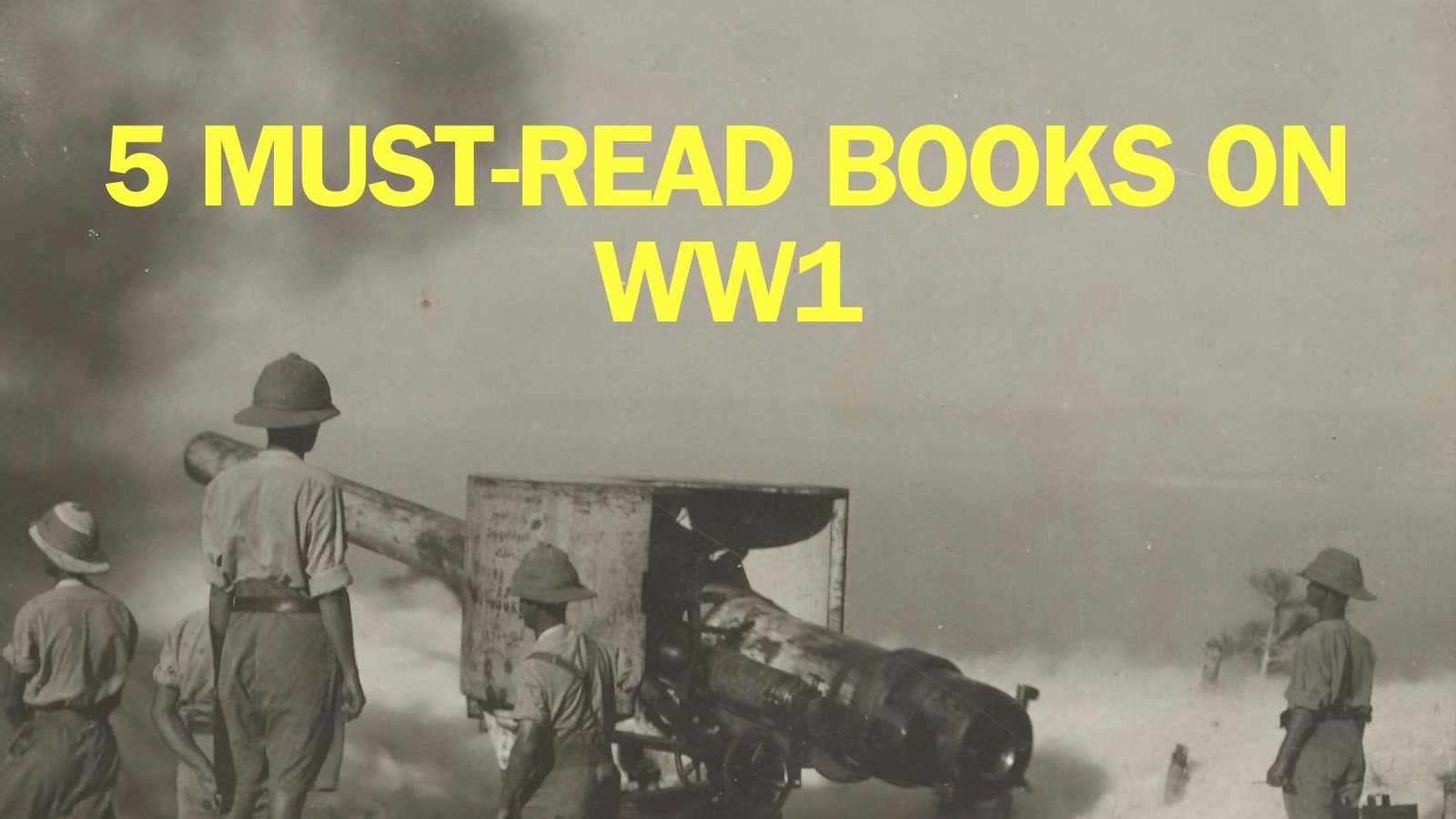In the vast expanse of historical literature, few periods have captured the imagination quite like World War I. From the thundering artillery barrages of the Western Front to the silent struggles of civilians on the home front, the Great War left an indelible mark on the 20th century. Yet amidst the well-known narratives of generals and battles, there lie hidden treasures waiting to be discovered — the untold stories of forgotten soldiers, overlooked theaters of war, and the cultural legacy of the conflict. In this exploration, we delve into the depths of WWI literature, uncovering five essential books that offer unique perspectives on the war to end all wars.
I. “The Guns of August” by Barbara W. Tuchman:
As the world teetered on the brink of war in the summer of 1914, Barbara W. Tuchman takes us on a gripping journey through the pivotal first month of the conflict in “The Guns of August.” With meticulous research and a novelist’s flair for storytelling, Tuchman paints a vivid portrait of the political intrigues, military strategies, and personal dramas that shaped the outbreak of World War I. From the grand palaces of Europe to the blood-soaked fields of Flanders, she brings to life the key players and pivotal moments that set the stage for the cataclysm to come. Through her narrative, readers gain a deeper understanding of the intricate web of alliances, rivalries, and miscalculations that plunged the world into war, setting the stage for the four years of unprecedented bloodshed that followed.
II. “All Quiet on the Western Front” by Erich Maria Remarque:
In the trenches of the Western Front, Erich Maria Remarque’s “All Quiet on the Western Front” offers a haunting glimpse into the brutal realities of war. Narrated by a young German soldier named Paul Bäumer, the novel strips away the romanticized notions of heroism and glory, revealing instead the harrowing truths of fear, suffering, and camaraderie in the face of senseless violence. Through Bäumer’s eyes, we witness the gradual disillusionment of a generation, as the ideals of patriotism and duty crumble in the face of overwhelming despair. Remarque’s stark prose and unflinching portrayal of the horrors of war have made “All Quiet on the Western Front” a timeless classic, resonating with readers across generations and continents.
III. “The First World War” by John Keegan:
For those seeking a comprehensive overview of World War I, John Keegan’s “The First World War” is an indispensable guide. Drawing on a wealth of primary sources and scholarly research, Keegan traces the origins, course, and legacy of the conflict with clarity and insight. From the strategic blunders of military commanders to the everyday experiences of soldiers in the trenches, he offers a multifaceted portrait of a war that reshaped the modern world. Through Keegan’s meticulous analysis, readers gain a deeper understanding of the political, social, and cultural forces that drove the Great Powers to the brink of destruction. With its engaging narrative and rigorous scholarship, “The First World War” stands as a definitive account of a conflict that continues to shape our world today.
IV. “A World Undone: The Story of the Great War” by G.J. Meyer:
In “A World Undone,” G.J. Meyer offers a sweeping narrative of World War I that encompasses the full scope of the conflict, from the corridors of power to the chaos of the battlefield. With a keen eye for detail and a knack for storytelling, Meyer brings to life the key events and personalities that defined the war. From the assassination of Archduke Franz Ferdinand to the signing of the Treaty of Versailles, he guides readers through the twists and turns of a conflict that reshaped the map of Europe and laid the groundwork for the turbulent century to come. Through Meyer’s vivid prose and insightful analysis, readers gain a deeper appreciation for the human drama and historical significance of World War I, as well as its enduring impact on the course of world history.
V. “The Great War and Modern Memory” by Paul Fussell:
In “The Great War and Modern Memory,” Paul Fussell explores the cultural legacy of World War I and its impact on the collective consciousness of the 20th century. Drawing on a wide range of literary, artistic, and historical sources, Fussell examines how the experience of war transformed the way we think, feel, and remember. From the poetry of Wilfred Owen to the paintings of Paul Nash, he traces the evolution of modernist sensibilities in the wake of the Great War, revealing how the trauma of conflict shaped the artistic and intellectual landscape of the postwar era. Through Fussell’s incisive analysis and deep empathy for the soldiers who endured the horrors of war, readers gain a deeper understanding of the profound and lasting impact of World War I on the human psyche.
Conclusion:
In the pages of these five essential books, we find not just the stories of a bygone era, but echoes of our own time. From the political machinations of world leaders to the personal struggles of ordinary men and women, the literature of World War I offers a window into the human experience in all its complexity. As we delve into these untold stories, we gain not only a deeper understanding of the past, but also a clearer vision of the present and future. So let us heed the call to remember, to reflect, and to honor the lost voices of the Great War, for their stories are our stories, and their legacy endures.





